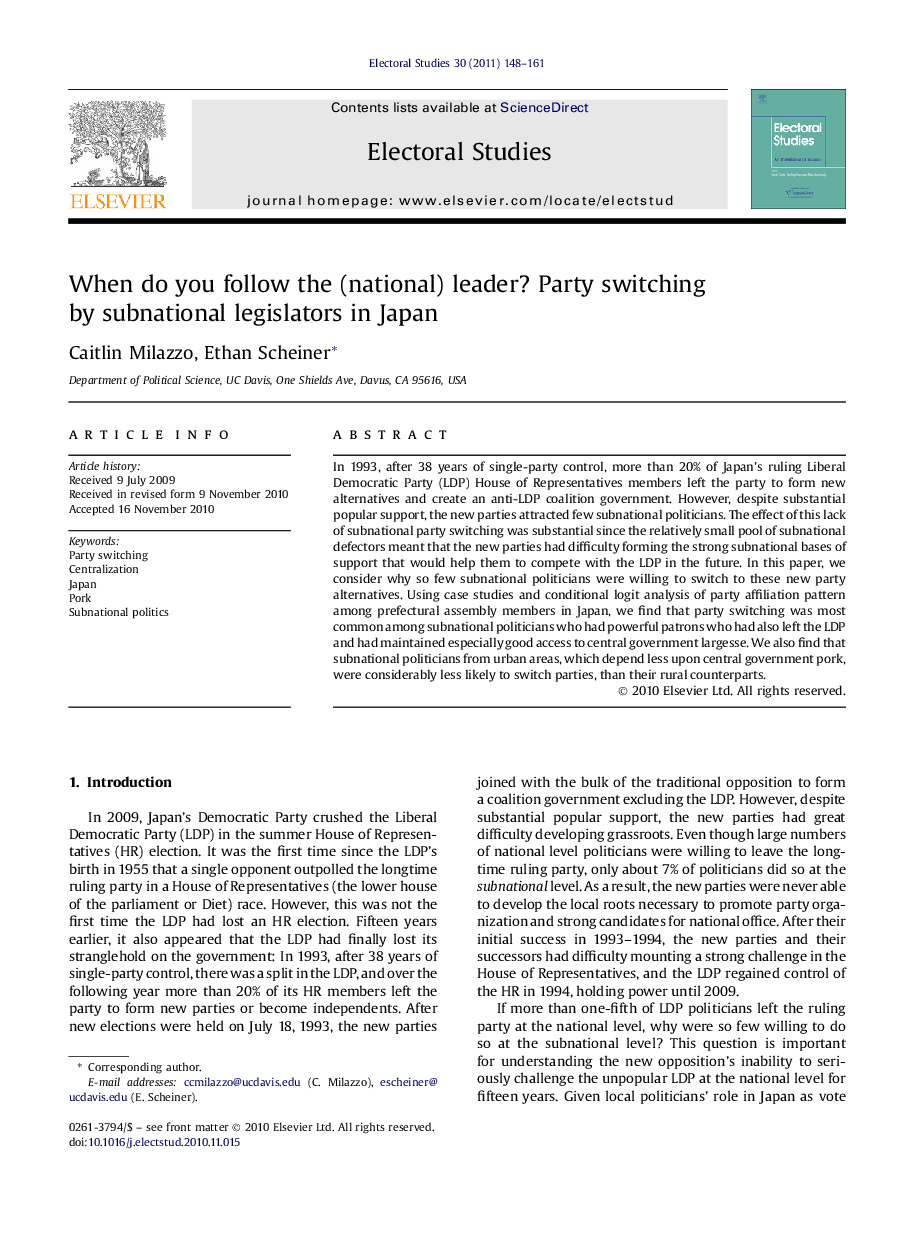| کد مقاله | کد نشریه | سال انتشار | مقاله انگلیسی | نسخه تمام متن |
|---|---|---|---|---|
| 1052239 | 946378 | 2011 | 14 صفحه PDF | دانلود رایگان |

In 1993, after 38 years of single-party control, more than 20% of Japan’s ruling Liberal Democratic Party (LDP) House of Representatives members left the party to form new alternatives and create an anti-LDP coalition government. However, despite substantial popular support, the new parties attracted few subnational politicians. The effect of this lack of subnational party switching was substantial since the relatively small pool of subnational defectors meant that the new parties had difficulty forming the strong subnational bases of support that would help them to compete with the LDP in the future. In this paper, we consider why so few subnational politicians were willing to switch to these new party alternatives. Using case studies and conditional logit analysis of party affiliation pattern among prefectural assembly members in Japan, we find that party switching was most common among subnational politicians who had powerful patrons who had also left the LDP and had maintained especially good access to central government largesse. We also find that subnational politicians from urban areas, which depend less upon central government pork, were considerably less likely to switch parties, than their rural counterparts.
► Party switching by subnational politicians infrequent in Japan.
► Party switching most common among those with powerful patrons who had switched.
► Party switching most common when patron had access to central government resources.
► Urban politicians, who need central resources less, less likely to switch.
Journal: Electoral Studies - Volume 30, Issue 1, March 2011, Pages 148–161